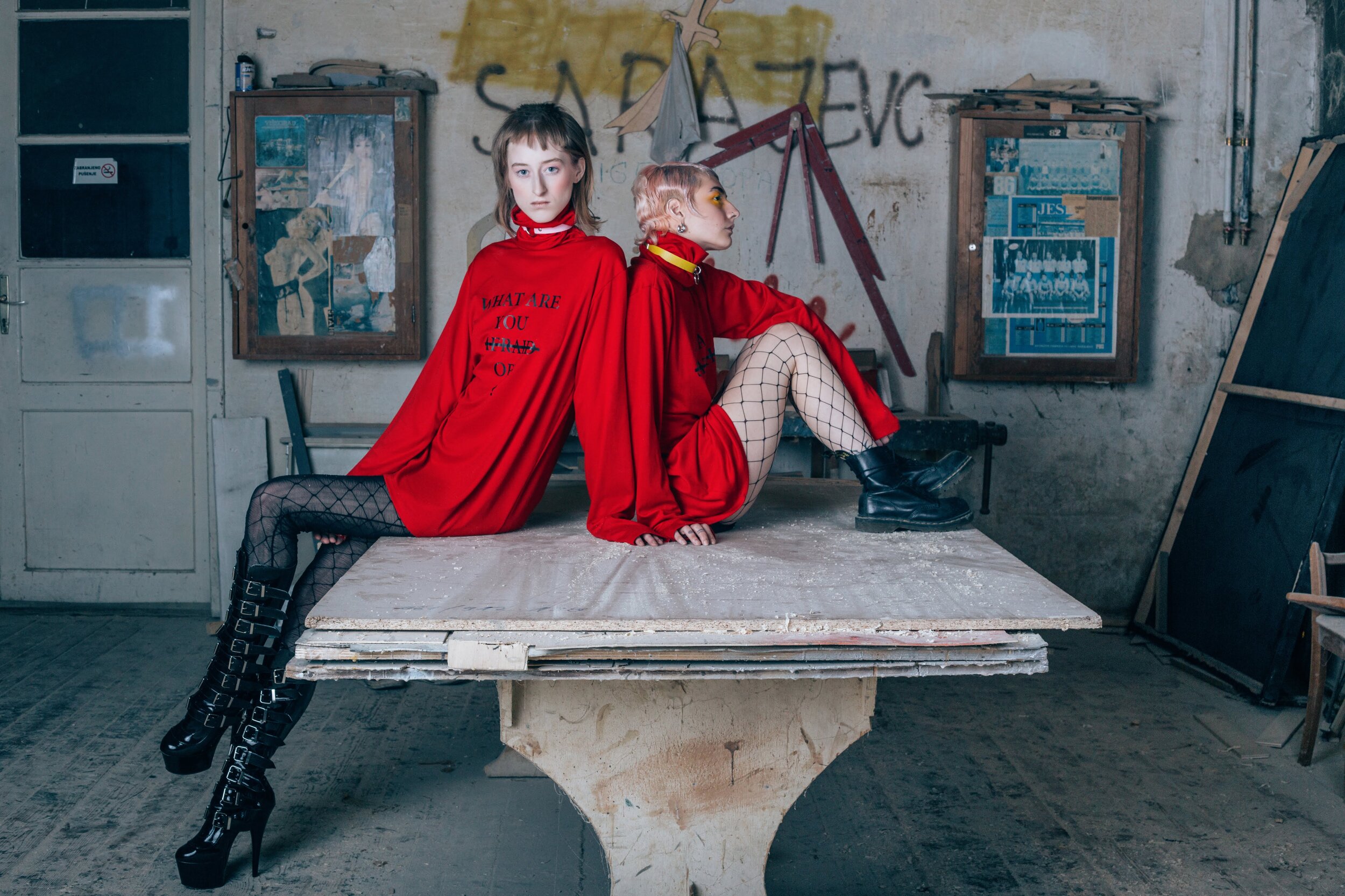
Sarajevo is a place where local talent is trying to distance itself from centralized ideas. At the forefront: stylist Gordana ‘Gasha’ Miladinović.
All industries strive to monopolize. And the fashion and design industries are no different in this respect. But they have a strangely paradoxical relationship. Any designer worth their salt will tell you that new and fresh ideas are worth ten times the ‘tried-and-true’ recipes that fashion conglomerates produce en masse. But these new ideas, if they gain popularity, are almost always absorbed into the industry in a never-ending cycle. Sarajevo is a place where local talent is trying to distance itself from centralized ideas. At the forefront: stylist Gordana ‘Gasha’ Miladinović.

She co-founded the firm “Re: Design” concentrating on interior design and architecture, and recently she has co-founded the Hive Creative Agency. Previously she won the entrepreneur of the month award, sponsored by the US State Department, and studied design at the Istituto Marangoni in London, before establishing herself in Sarajevo.
It’s inspiring but also surprising to see a woman succeed in a patriarchal society such as Bosnia and Herzegovina. When asked about the working environment in regard to her gender – and women in general – her reply was a nuanced one: “I don’t think women are any more or less intimidated by the business world here than anywhere else. Hard work is a universal language. Nevertheless, it is important to understand the environment where you want your business to thrive. This awareness of the possibilities and limitations is extremely important if you are to avoid pointless effort and burnout with few results.”
That’s not to say she denies the existence of discrimination and sexism. But Miladinović seems to be more keyed towards a realistic mentality: how to navigate a challenging environment to the best of her abilities.

We asked her for advice for readers wishing to get ahead in the creative industry:
“To never stop learning, exploring, that everything is good for something, that no skill is a useless skill, to work on focus and goals, and to take care of themselves and learn to dance to the beating of their own drum. There is no manual for life; it’s OK to have your own timeline and your own path.”
__________________________________________________________________________________
This article was initially published within the Bosnian edition of ASBO Magazine in 2019. ASBO Magazine is an independent publication created by the D Foundation as an extension of its mission to unearth and showcase fresh talent. The magazine aims to showcase the artistic talents and potential of Bosnians and Herzegovinians in an effort to empower and give them an international platform to share their work, ideas, and opinions on music, fashion, art, and cinematography.






